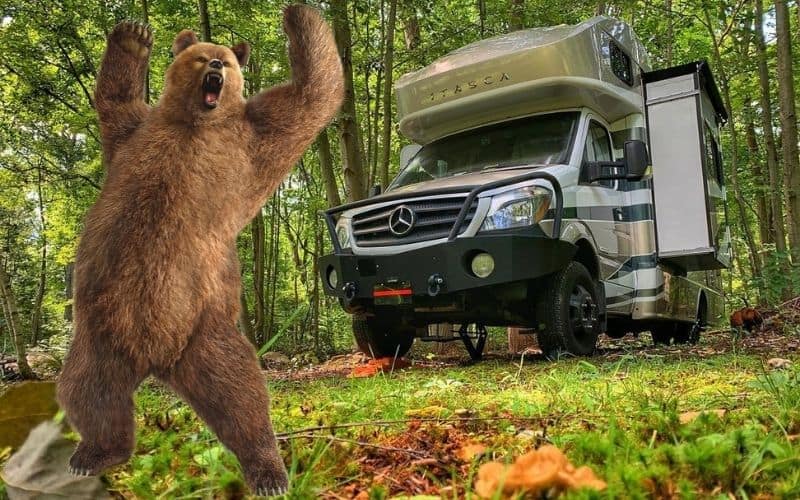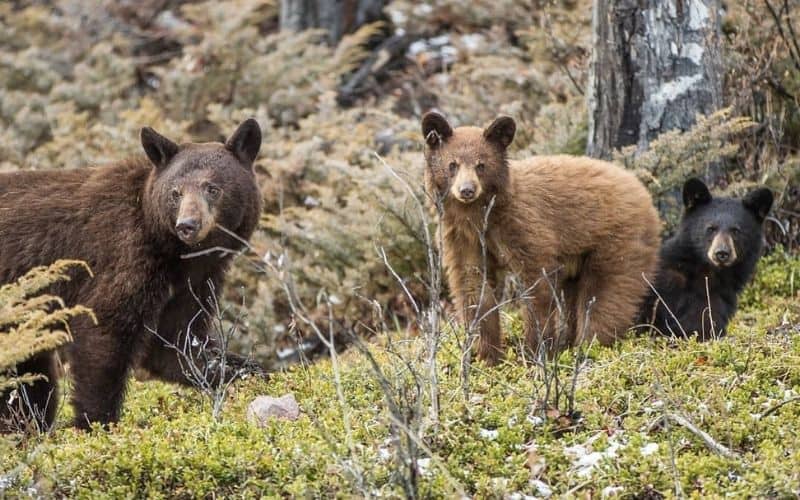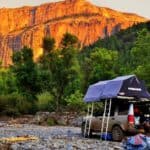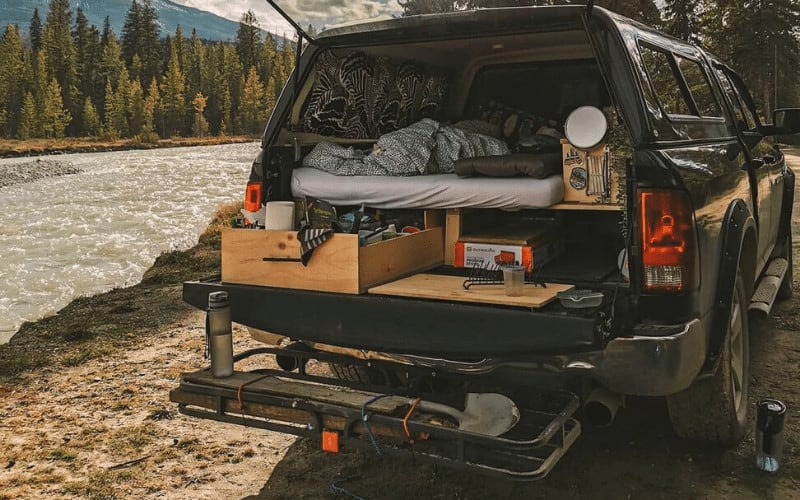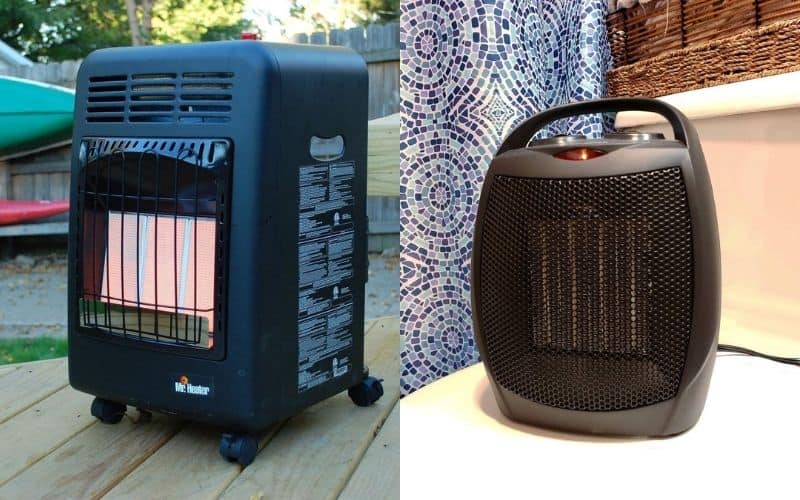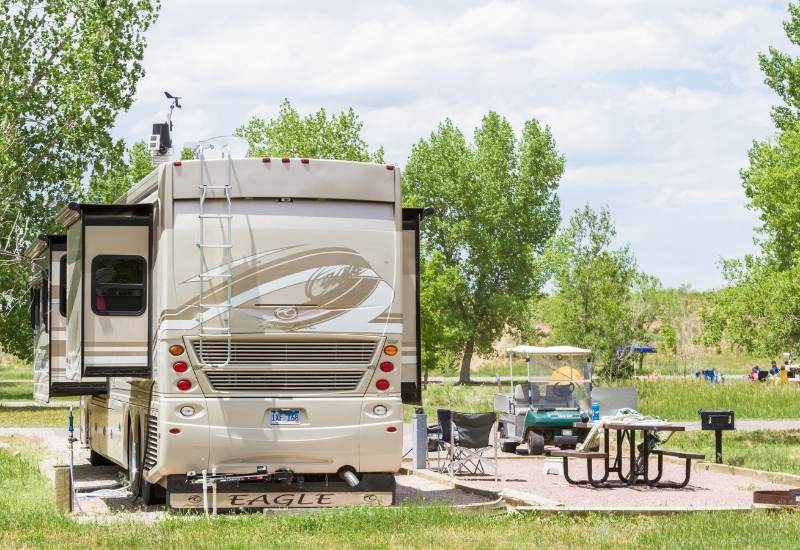Lions and tigers and bears – oh my! Well, maybe not lions and tigers; that’s for camping in a very different part of the world (unless you’re in Florida… ever seen Tiger King?)
But in all seriousness, bears ARE a real concern in certain parts of the U.S., especially states like Montana, Wyoming, Idaho, and Alaska.
And if you find yourself RV camping in bear country, you’re probably asking yourself: Can bears break into an RV?
Yes; bears can break into an RV (although they are unlikely to do so). Bears are attracted to anything that smells: food, remnants of food, and even scented products like lotions and shampoos. They are extremely strong and intelligent animals that have been known to break through doors, tear through tents, and even pick locks.
Now, I know you probably have a million questions going through your mind – Can I cook in bear country? Can bears smell food inside my RV? And most importantly: How do I keep bears out of my RV?
Lucky for you, we will address all these questions and more. You’ll be glad to know that it is totally possible to safely camp, cook, eat, and have a good time all while in bear country – as long as you follow certain precautions.
Let’s start by learning a little bit about our bear friends.
The Secret Lives of Bears
There are 3 different types of bears that inhabit North America: The American Black Bear, Brown Bears (including Grizzly Bears), and Polar Bears.
Black bears are the most populous and widely dispersed across the United States, and they are generally smaller and more skittish than the others.
Black bears are the only bears you will encounter in the eastern United States and they generally like to keep their distance from humans.
A friend of mine who encountered a black bear on the Appalachian Trail described them as “big mice” – always on the hunt for food and easily scared off.
That being said, make sure to store your food properly; black bears can smell a tasty treat up to 20 miles away!
Brown bears, on the other hand, are bigger and typically more aggressive than black bears.
Regionally known as Grizzlies in the inland United States, they are extremely intelligent and even remember food sources they once found as cubs.
Even so, you are much less likely to encounter a Grizzly than a black bear. Grizzlies have slowly retreated into the Northwestern part of North America due to humans’ increasing encroachment into their habitat.
Therefore, you will only find Grizzlies in 5 states: Alaska, Washington, Wyoming, Montana, and Idaho.
You are even less likely to encounter a Polar Bear, as they only inhabit the arctic. Nevertheless, they’re worth mentioning just in case you ever feel like venturing up to the northernmost parts of Alaska and Canada.
Polar bears are the largest of all bears and are the most dangerous to humans. Because they have very few encounters with people, they are more likely to see us as prey and attack.
Yeah, not something you want to mess with.
So, how do you stay safe while camping in bear country? Let’s begin by learning about what attracts bears the most.
What Attracts Bears to Campsites?
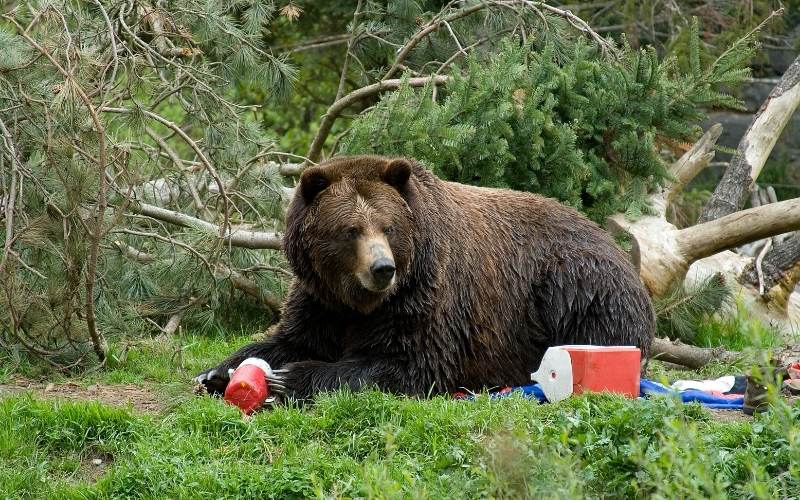
One word: SMELLS.
And I don’t just mean those delicious burgers you’re cooking on your grill. I mean everything: food, drinks, toothpaste, shampoo, deodorant, and even cleaning products.
You know all those fragrances they put in our products to make us smell pretty? The bears like them, too, and can probably smell them up to 20 miles away.
Don’t let this worry you too much, however. Bears aren’t roaming around looking for human altercations. In fact, they would rather not be around us at all.
And unfortunately, most interactions between bears and humans are due to the increasing impingement on their habitat.
Be it housing, logging, tourism, or agriculture – conservationists are finding it more and more difficult to keep bears wild.
So when you’re in bear country, it’s best to treat the environment like another person’s home; a person with an extremely strong sense of smell who might tear through your belongings just for a snack, that is.
Because even though the bears don’t want to be around us, they will pay us a visit if they’re hungry enough and smell something interesting – even if it’s just a citronella candle sitting on a table outside your RV.
This leads me to our main issue: how to prevent bear encounters.
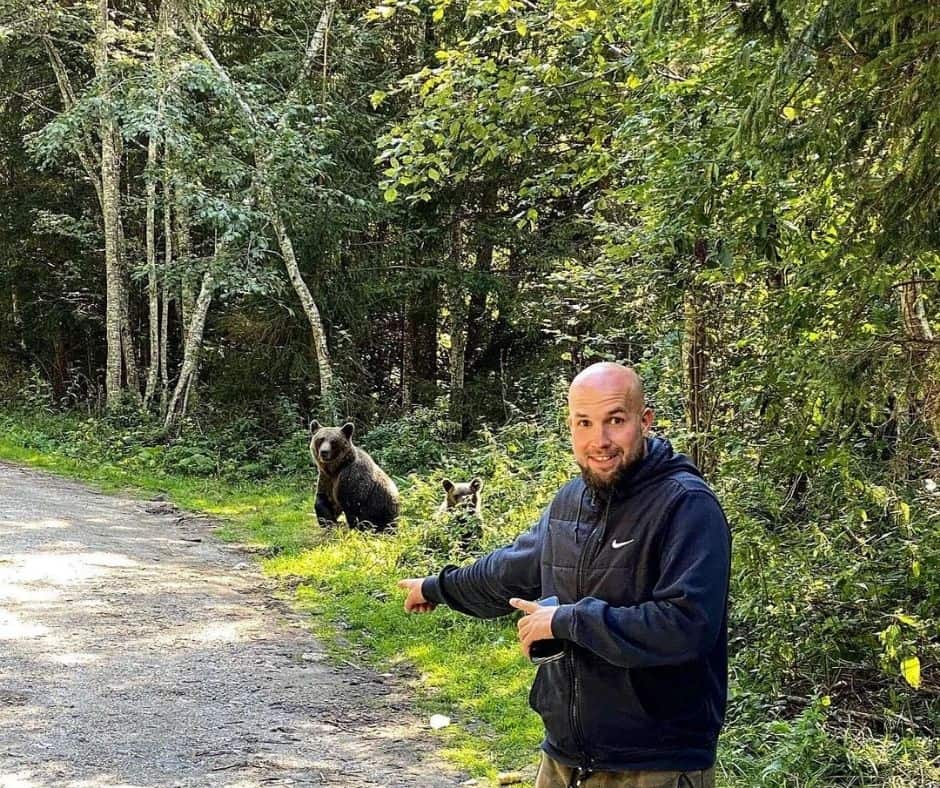
Tips for Keeping Bears Away When Camping in an RV
If you’re planning a trip through an area with a high bear population, your best method of defense is prevention.
Remember, it is their home and we are the visitors. If someone showed up at your house with a feast, you’d naturally be curious, right? You might even assume some of that food is for you – especially if you’re starving.
This is why we must limit our impact while we’re exploring the beauty of bear country; because bears don’t understand our intentions. They are simply hungry.
The good news is: if you follow some simple precautions, you’ll be able to cook, eat, and have a great time at your campsite – safely, of course.
Here are 7 simple safety tips to keep bears away from your RV campsite:
1. Clean up your campsite.
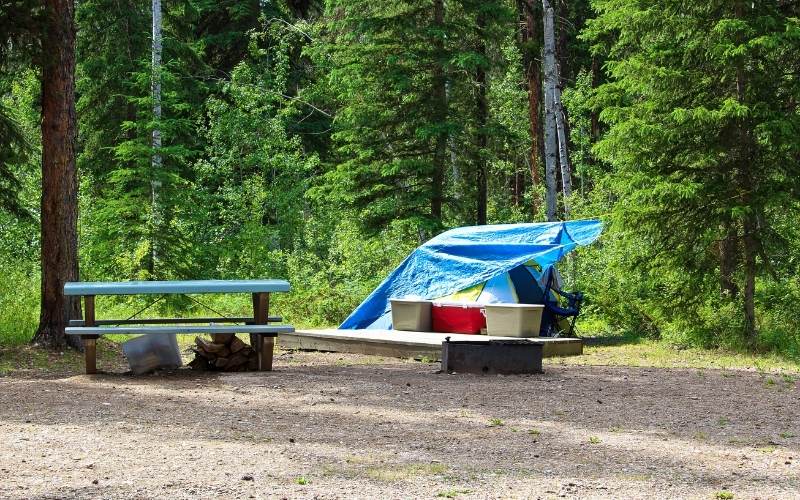
I’m putting this one at the top because it may end up being the first thing you do when you get to your campsite.
No one likes cleaning up another person’s trash, but if it’s there, it could be a danger to you and your family.
Begin by going around the area and scanning for debris, as any remaining cans or wrappers could hold scents that might allure bears to your campsite.
Make sure to check the fire pit as well; even campers with the best intentions may accidentally leave bits of trash or food in the fire pit.
This way, you’ll start off your camping experience relaxed and without worry.
2. Use a bear-proof food storage locker.
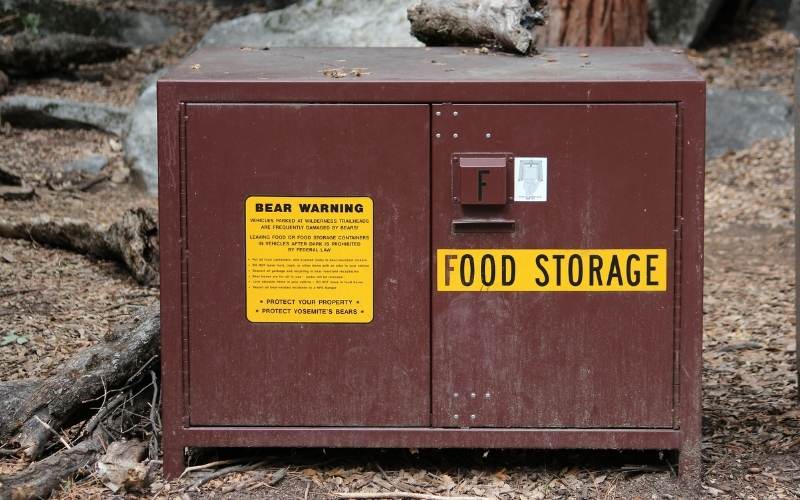
Good news! More often than not, campgrounds in bear country have securely latched storage bins for you to keep your food in.
They will usually hold a large cooler and dry goods, ensuring that the scent of your lunch doesn’t reach its way to a bear’s nose.
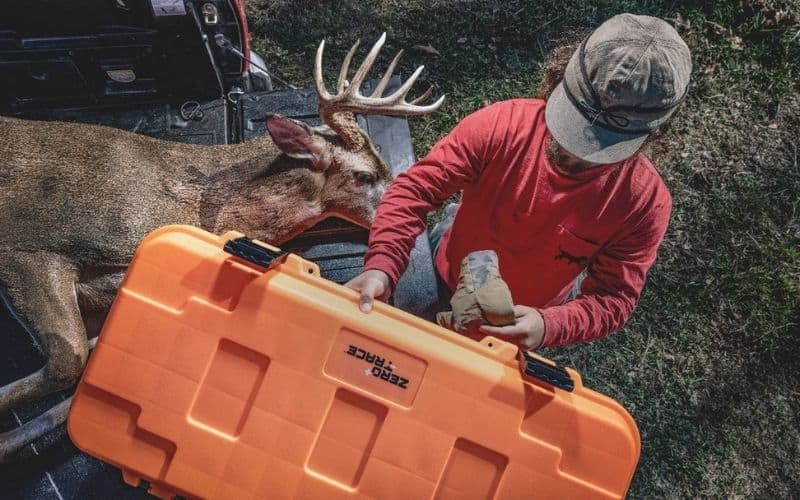
If you want to be extra cautious, you can buy a storage bin designed to eliminate scents, like the Wildgame Innovations Zerotrace Trunk by Scheels.
It uses plasma ions that naturally cling to airborne particles, causing any odor molecules to lose their scent.
This is a smart purchase, especially if you plan on boondocking in bear country.
Remember, you may not find the bear-proof storage lockers if you decide to go off the beaten path.
3. Properly dispose of your waste.
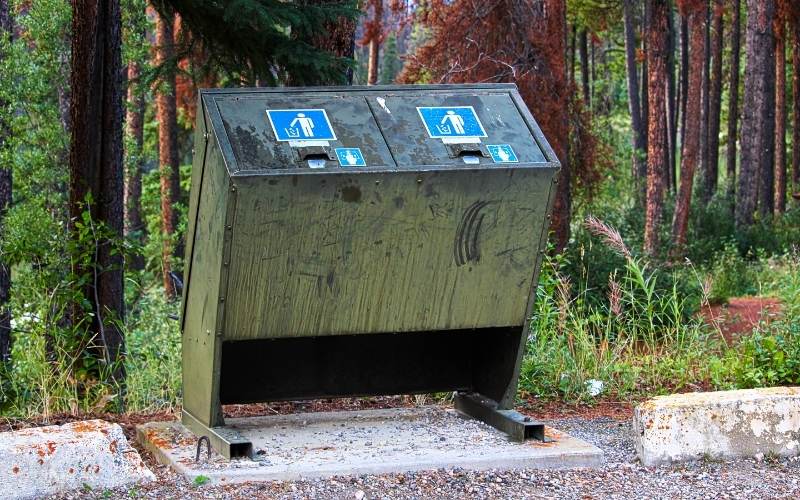
I cannot say this often enough: never leave trash lying around your campsite! It is the equivalent of openly inviting ALL the bears in the vicinity to come and crash your party.
Even if you don’t think your trash is particularly smelly; even if it is just a beer can by the fire pit; even if it is some crumbs left on the table outside – bears can and will smell all of these things.
Instead, be sure to properly dispose of your garbage in a bear-proof dumpster (which should also be at the campground).
Moreover, when you are done eating and getting ready to hit the hay, make sure you sweep up any crumbs and take care of the waste.
If there isn’t a good place to dispose of your garbage, put it in an airtight container and bring it into your RV.
Never leave a bag of garbage outside of your RV, no matter how smelly it is!
4. Keep scented products at home.
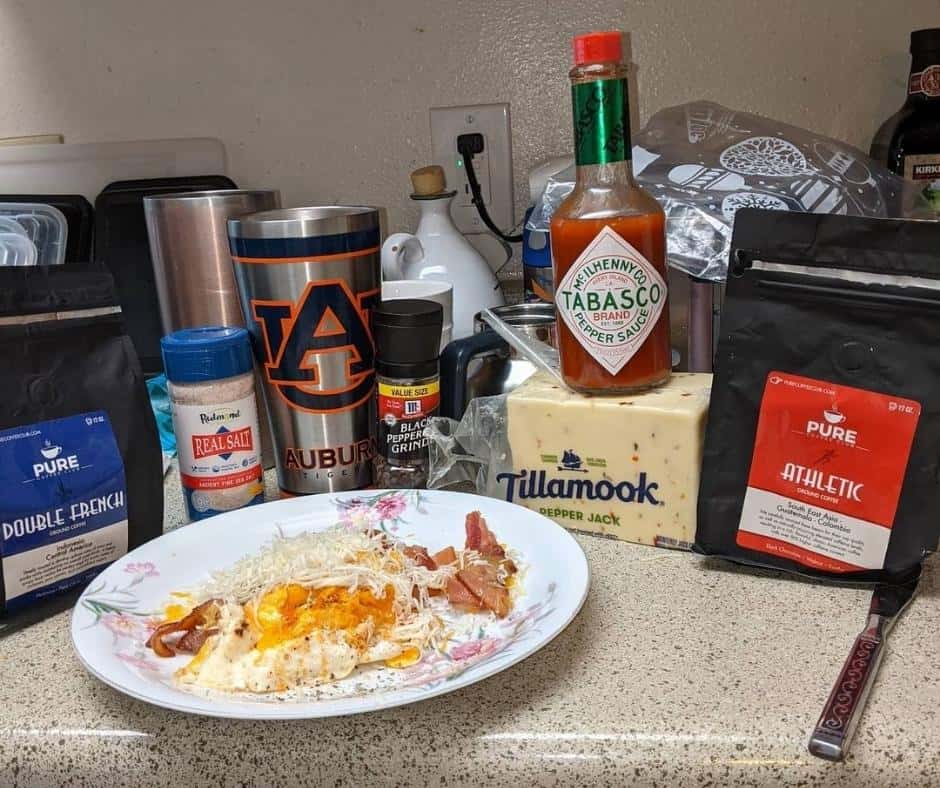
As much as you can, try and leave products with strong scents behind.
There is really no need for them out in bear country anyway, right? This includes strongly scented soaps, shampoos, perfumes, deodorant, candles, lotions, etc.
The makers of these products have ingeniously created concoctions that smell good enough to eat – but that’s just the problem when it comes to bears.
If they smell that “warm vanilla sugar” lotion from Bath and Body Works, they might think you’re making them a batch of the most delicious sugar cookies!
You might also be wondering: Can bears actually smell these scents inside my RV? Unfortunately, only the bears truly know the answer to that question; but if I had to guess, they probably can under the right circumstances.
For example, if you have your vents open while cooking bacon, the answer is most definitely yes.
Don’t let that frighten you, though. Simply clean up after you cook and keep your space tidy.
5. Store anything scented in an airtight container.
But what if my RV IS my home? As a former full-timer, I can relate; and I understand if it is just not feasible to get rid of ALL your scented products.
If this sounds like your situation, I recommend putting all of your smelly lotions, shampoos, deodorants, etc in an airtight container and refrain from using them while in bear country.
REI sells containers called “BearVaults” for this very reason. It may seem like an overkill, but it never hurts to be cautious.
6. Use motion-sensor lights around your RV.
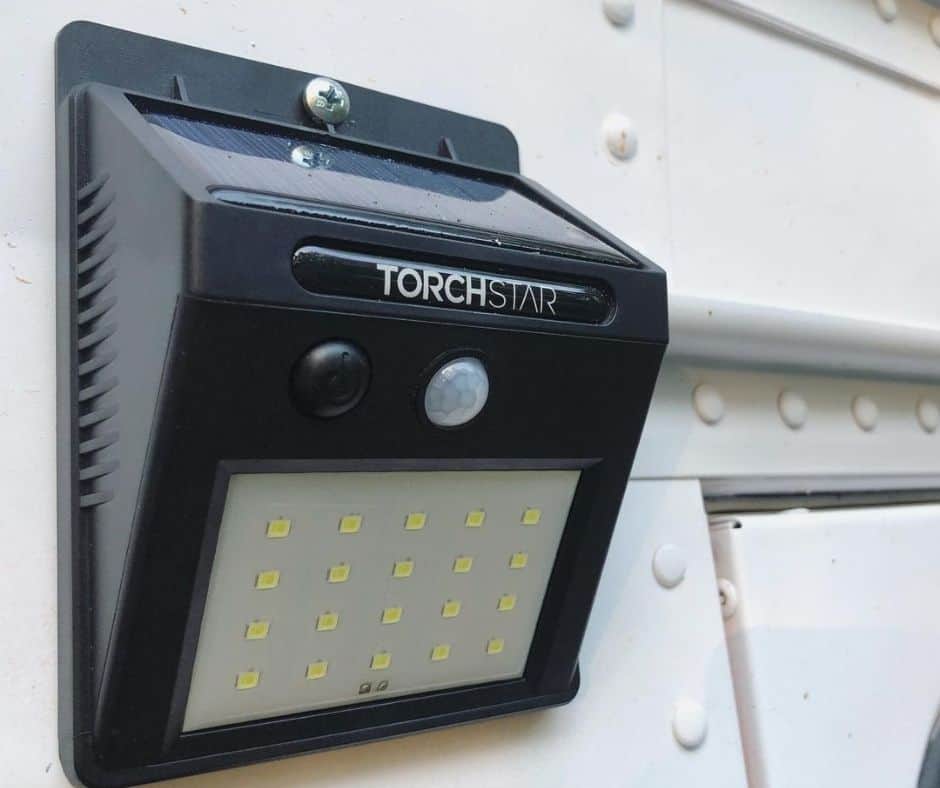
Another precaution you can take to reduce your chances of a bear encounter is to install motion-sensor lights around your RV.
You can find these solar-powered outdoor lights on Amazon. If a bear comes roaming around your campsite at night, the lights will click on, sending a sudden flood of light that will not only temporarily blind the bear, it may just be enough to scare them off too.
The nice thing about this method is that it won’t wake you up at night, but if you do wake up, you’ll be able to see what is happening outside your rig!
7. When in doubt, stay away (especially if you’re not in an appropriate rig).
To preface, this point should NOT keep you from exploring bear country. We want you to explore the awe-inspiring beauty of these secluded areas, but we also want you to do it safely.
If you’re in a camper with soft sides (like a pop-up camper), you may want to think twice before camping in areas that bears frequent.
In fact, some campgrounds in bear country require hard-sided campers.
To put it plainly, make sure you familiarize yourself with the area and the rules of the campground before you head out.
If you find yourself worried that you won’t be adequately prepared, consider postponing your trip until you’re in an appropriate rig.
You want to enjoy your trip, and feeling vulnerable would be a total buzzkill.
Protecting Yourself Further
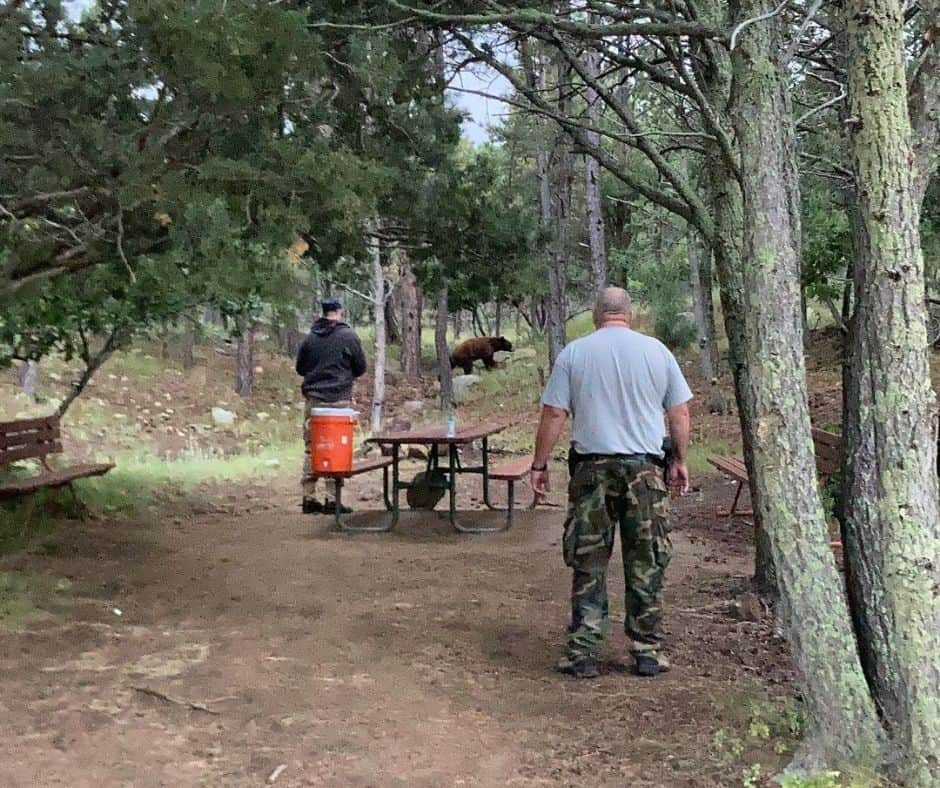
So, what if all of these deterrents fail? Or what if you’re on a hike and actually cross paths with a bear? There are a couple measures you can take to protect yourself further in the event of these rare occurrences.
First and foremost, make noise. In fact, make as much noise as you can if you’re hiking through the secluded mountains of bear country.
Talk to your hiking buddy, and if you’re alone, talk to yourself. Hell, even sing! And if you’re a bad singer like me, even better! This will let the bears know that you’re a human and to stay away.
Some people even hike with bells on their pack for another protective measure. This way, if there is a bear in the area, they will hopefully hear you and run the other way.
Secondly, consider arming yourself with bear spray. Bear spray is a deterrent made of red pepper oil that temporarily inflames the bear’s eyes and respiratory system.
If you decide to utilize this safety measure, make sure you familiarize yourself with the device; and most importantly, keep it in an accessible place.
For more information on purchasing and using bear spray safely and effectively, visit the Alaska.gov website. There is a fantastic brochure with helpful tips here.
How to Handle a Bear Encounter While Camping
So, what do you do if the worst happens?: You actually come face to face with a bear and they don’t immediately turn and run the other way.
Scary, huh? Well, in addition to your bear spray, it’s best to arm yourself with the knowledge that could save your life. What Should You Do if You Encounter a Bear?
If the bear decides to charge, this is your time to use the bear spray. Many times, a charging bear will end up veering away.
If this happens, or if the bear spray ends up deterring the bear, resist the urge to immediately run away.
Instead, you’ll want to keep your eyes on the bear and slowly remove yourself from the area.
For more important information on bear encounters, visit the National Park Service.
Be Prepared, But Don’t Live in Fear
To put it bluntly, bear encounters are rare, and bear attacks are even rarer. Bears don’t want to be around you any more than you want to be around them.
Nevertheless, it is becoming increasingly difficult to keep humans and bears from crossing paths – especially in places like Yellowstone National Park.
The last thing we want is for bears to become used to humans and see us as a source of food.
This is why we must do our part to keep nature (and the bears) wild. Not only will it make our RVing experiences much more enjoyable, but it will help preserve the bears’ much-needed habit. Not to mention, it could save a life!
Now we want to hear from you! What precautions do you take when you’re in bear country? Is there anything we didn’t mention? Let us know in the comments below!

